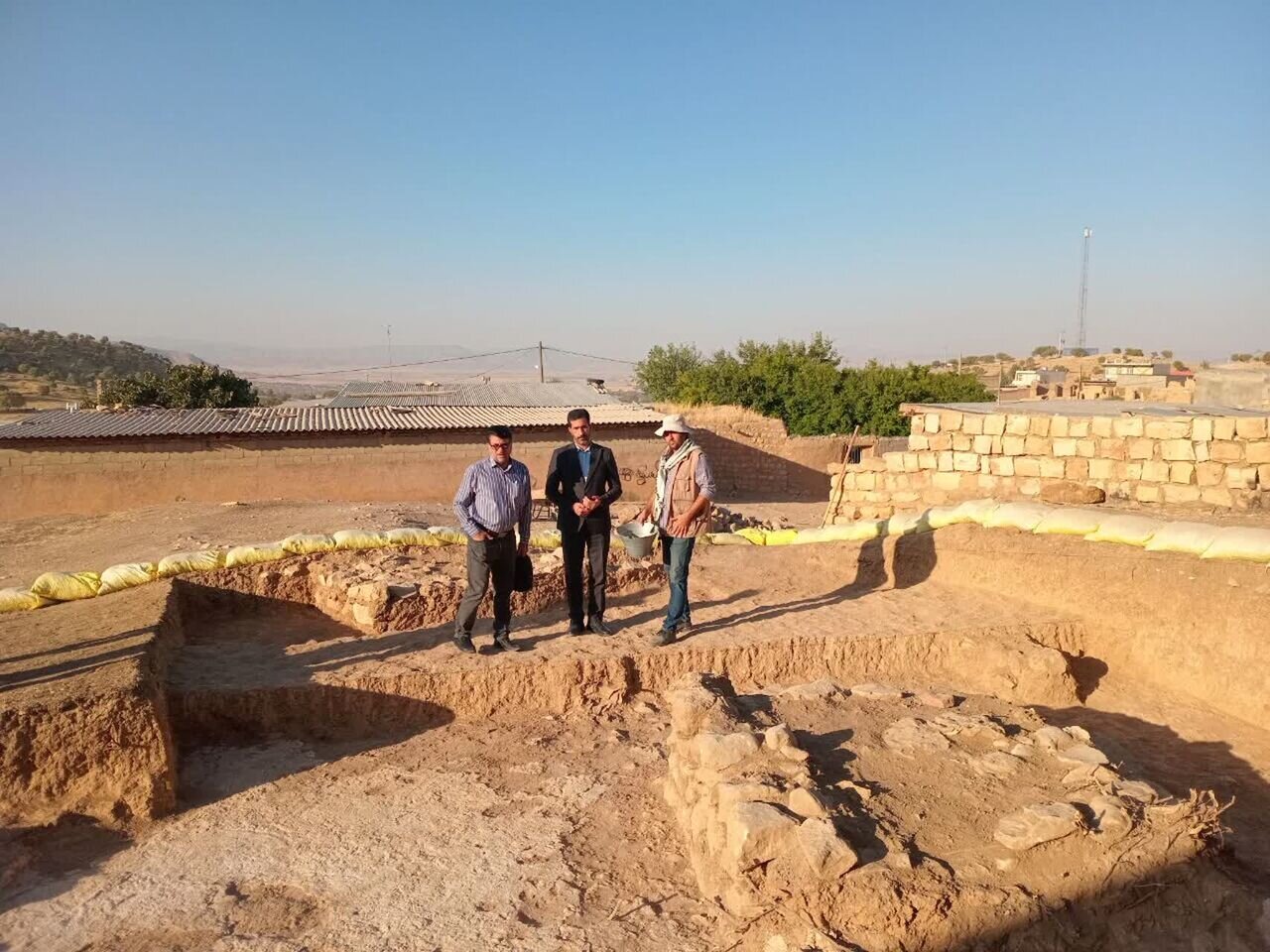Sassanid-era fire temple ruins found in Lorestan after illegal excavation

TEHRAN – Archaeologists have unveiled a Sassanid-era fire temple in Rashidabad, Lorestan, after illegal excavation activities prompted an urgent excavation, revealing key elements of this ancient structure.
“The discovery was prompted by illegal excavation activities earlier in the spring, which led to an immediate response from authorities,” said a local official in charge of cultural heritage on Thursday.
The unauthorized diggers, Ata Hasanpour added, were apprehended following security monitoring. After securing the necessary funding through several months of negotiations, an emergency excavation was conducted over the past 15 days, supervised by Sajad Alibeygi, he further elaborated.
Hasanpour highlighted that the excavation revealed a substantial portion of the Sassanid fire temple, characterized by its four-iwan architectural style—a structure typical of Sassanid religious sites.
Key features uncovered include the main four-iwan structure, an altar (or fire altar), decorative plasterwork, a circumambulatory hall, and the temple’s outer enclosure, according to the director-general.
These findings, he continued, are crucial for filling in gaps in the historical record of the Sassanid period in western Lorestan, providing new insights into the architectural and cultural practices of the time.
In his final words, Hasanpour commended the collaborative efforts of various stakeholders in this successful excavation.
This discovery not only enhances the understanding of the Sassanid period but also underscores the importance of preserving and protecting Iran’s rich archaeological heritage from unauthorized activities.
XF
